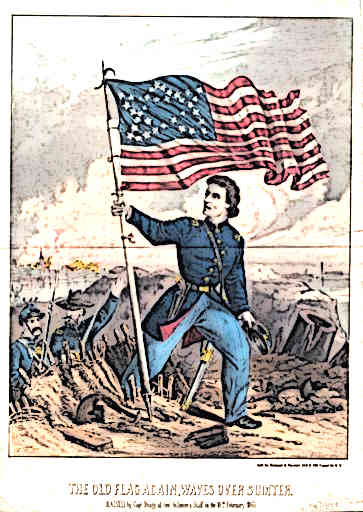Top 10 Facts About the American Flag
1. The original flag was adopted in 1777:
The Stars and Stripes design was officially adopted by Congress on June 14, 1777. The official version of the flag displayed 13 stripes and 13 stars (representative of the 13 original colonies).
2. Commission of the first flag
Ironically, the very first American flag was commissioned using three strings of Wampum (a traditional shell bead of the Eastern Woodland tribes of natives Americans).
3. It was designed by a high school student
After Alaska and Hawaii officially became states under the United States constitution, President Eisenhower received thousands of ideas for the flag’s design. One such idea came from a 17-year-old high-school student, Robert Heft, who made it for his class project. His version was accepted and is still in use today.
4. There is symbolism behind the colors
The colors of the flag have their own symbolism: the color red represents hardiness and valor, while white symbolizes purity and the color blue represents vigilance, perseverance and justice. The 13 stripes represent the 13 colonies while the 50 stars symbolize the 50 states.
5. Maintenance of the flag
If the flag can no longer be used, it must be destroyed in a respectful manner – such as burning. It must be washed and cleaned if it gets dirty, or if it touches the ground and is soiled as a result.

Image of Old American Flag Civil War
6. Rules of display
According to the Federal Flag Laws, the American Flag should be displayed from sunrise to sunset. The proper way(s) to view a displayed flag (during a parade or review) is by facing the flag with your right hand over your heart. The flag must always be flown upright. In some extreme situations, it is allowed to fly a flag upside down – doing so signifies that a person is in extreme distress.
7. Is Betsy Ross the real designer
While Ross is certainly given most of the credit for the American Flag, it is important to point out that the original American Flag was officially adopted in 1777 while her legacy was first claimed in 1876 (nearly 100 years after the original). For this reason, it remains questionable as to whether or not Betsy Ross was actually commissioned by General George Washington sew the flag.
8. Flag Day
On May 30, 1916, President Wilson issued a proclamation declaring Flag Day as the anniversary of the Flag Resolution. On August 3, 1949, President Truman signed an Act of Congress designating June 14 as the National Flag Day.
9. The Original Flag Still Exists
The original flag that flew over Fort McHenry during the War of 1812, still exists to this day – a 15-star, 15-bar flag. It is permanently displayed at the Smithsonian’s National Museum of American History.
10. Flag(s) On The Moon
Of the six flags planted on the moon, five of them are still standing to this day. The only one that is not standing is the first ever flag on the moon, placed by Neil Armstrong.

- American Flag History & Symbolism
- American Battle Flags: Complete List
- Betsy Ross
- Confederate Flag History & Meaning
- Culpeper Flag: Don’t Tread on Me
- Dixie Flag: History & Symbolism
- Fort Moultrie Flag: History & Meaning
- Gadsden Flag
- Grand Union Flag
- History of the American Flag
- Star Spangled Banner
- The Bonnie Blue Flag
- Top 10 American Flags
- Top 10 Facts About the American Flag
- U.S. Flag Code
- Whiskey Rebellion Flag: History & Meaning
- Why the American Flag Has 13 Stripes and 50 Stars